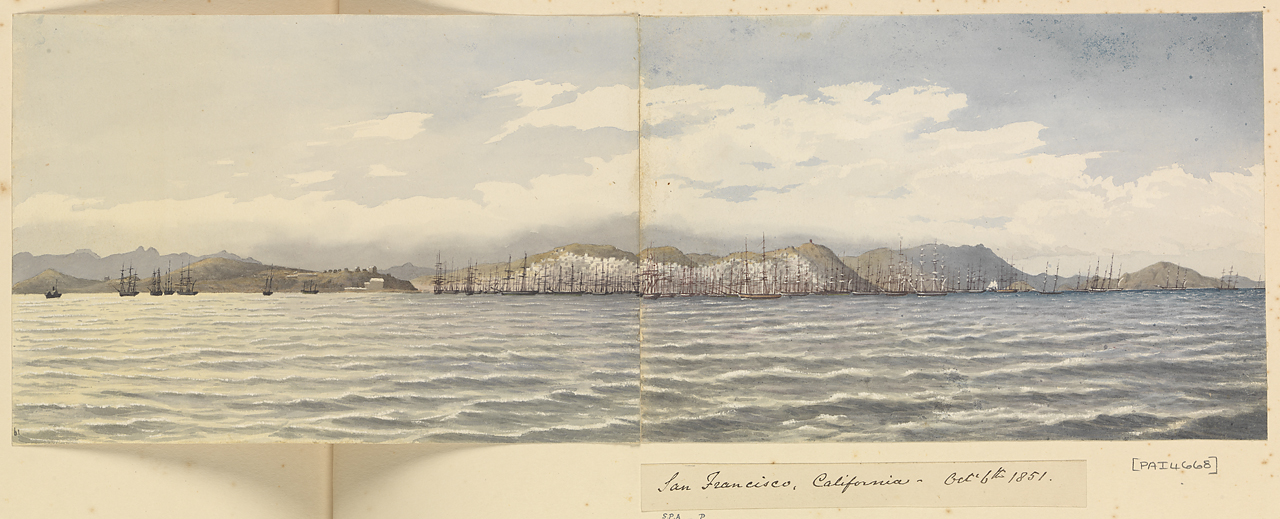
Avoiding spelling mistakes.
San Francisco
Anyone who studies or works on a university campus need to know how to spell the name of the American city San Francisco because books are published there and must be cited in academic publications. Yet San Francisco is sometimes spelled wrong as San Franciso or San Fransisco. Spelling the name of a place wrong can be seen as a lack of respect for the people who live there, so it is always worth trying to get this right. For that reason, the story of how San Francisco got its name may be useful. In the 1700s, Spanish Catholic priests established religious and military outposts in California to convert local Native Americans to Christianity. These priests were Franciscans, following the teachings of the Italian spiritual leader St. Francis of Assisi. In 1776, one mission and fort was named after San Francisco, which is the Spanish form of the name Saint Francis. In 1850, this term extended to the whole city. If you remember the Francis part of the name, you will be less likely to spell the name Francisco as Fransisco, mistakenly putting a letter s where a letter c should be. Similarly, if you also remember the common Spanish name Francisco – other noted Franciscos include the painter Francisco Goya and the explorer Francisco Pizarro – then you should recall that the name requires two letter c’s, and should never be spelled Franciso.

Scottish
Another important place-related name is often spelled wrong as Scotish. This is confusing even for people who are native English speakers, including some born in the United Kingdom. Everyone knows how to spell the name of Scotland, but problems start with the adjective referring to people or other things related to it. There is only one letter t in Scotland, but if you wish to use the adjective Scottish, two letter ts are required. If you prefer a word that has only one letter t, then another choice would be the word Scots, which means the same thing. The Scots language is a term often used for what the Scottish or Scots people traditionally speak. Be careful not to use the adjective Scotch to describe Scottish or Scots people, as it is considered offensive or disrespectful by some people. Scotch is correctly used to describe things to eat or drink, such as Scotch whisky, Scotch pie, and Scotch eggs.

Separation
As all English learners know, it is helpful when a word is spelled the way it is pronounced. That makes it easier to get a spelling right, because it feels natural. Many people pronounce the word separation as if it were spelled seperation, but that is not a good reason for spelling it that way. The word separate comes from a Latin word meaning divided and its original root is spelled separare. It is not necessary to remember this, only that the center of the word separate is written with the letters para and not with the letters pera. To remember this, you might think up an image of a parachute or paratrooper and tell yourself a little story about how one of them was separated from others during combat. Try not to worry too much if you make this mistake as a non-native English speaker, because many native English speakers do the same. One 2010 study claimed that separate is the English language word most often spelled wrong by British people. Experts always disagree about specific rankings in such lists, but it is certain that many people, when deciding whether to put the letters para and or the letters pera in the center of the word separate, make the wrong choice. Among other words in the same study that proved particularly difficult for British people to spell were definitely, embarrass, and occurrence. Part of the problem, according to the study organizers, is that many people rely entirely on computer spell check devices and never bother to learn even a little about the words they must write. As a result, they have no idea of how a word should look once it is typed on a page, and often get lost. Even thinking a little bit about words can prevent this situation. Correct spelling is important, especially in an office or university, since bad spelling can be associated with poor education or lack of intelligence. To be taken seriously as a Thai writer of English, it is especially wise to pay attention to such details. We may think that farang readers will understand and forgive spelling mistakes from non-native users of English, but it is better not to expect this kind of generosity on the part of people. Sometimes, spelling can be so mistaken that it becomes difficult to understand what a message is supposed to mean. As you type words in English on a PC or tablet, if the device does not offer spelling variants, it can mean you are too far from correct spellings of a genuine English word.

September
Moving on from place names to times of the year, the month of September is often spelled wrong as Septmeber or Septmber or Septemper. The last of these wrong choices may be understood, because the final letters, temper, make up an English word, whereas the accurate spelling with the letters tember do not. Yet many English words are spelled in a way that does not include other recognizable English words inside them. It is better not to rely on such false clues to get things right. How months were assigned names is an old and sometimes confusing story. The first four letters, sept, in the month September refer to the number seven. That is because in the ancient Roman calendar, September was the seventh month of the year. As we know, this is no longer the case in the modern calendar, according to which September is the ninth month of the year. Since it has such a misleading name, the story of how September got its name will probably not help us to remember the right spelling. Fortunately there is an American musical comedy song from 1960 beginning with the words “Try to remember the kind of September…” This song, “Try to Remember,” became a pop hit with many versions still available on YouTube. The song helps people easily think of the word remember when they think of September. Even if you think the song is boring or sentimental, if you have to spell the word September, try to make it look similar to the word remember. That should prevent wrong spellings such as Septmeber or Septmber or Septemper.
Language
As we have seen, it can be a mistaken approach to spell out recognizable English words inside another word. This often does not work. Another example is the word language, sometimes misspelled as langauge. The perfectly good English noun gauge refers to a measuring instrument or device that tells us how much of something is in something else. There is also a verb gauge, meaning to estimate or determine this amount. Unfortunately, the word gauge should not be put inside the word language, which instead requires the letters guage, which cannot stand alone as a valid English word. Words derive from other, older words in different languages, making it difficult to try to figure out spellings. If you knew that the word language came from an old Latin term for language, lingua, it might help. The literal meaning in Latin for the word lingua is tongue, the organ in the mouth of mammals making it possible for them to speak. For this reason, the word tongue is still used sometimes in a literary context to mean a spoken language, such as the English tongue instead of saying the English language. Without spending too much time on this history, it explains why the odd and seemingly un-English letter combination of gua is found in the middle of the word language, and not the apparently more easily recognizable letters gau.

Library
Obviously, it is a good idea to know the spelling of the place where you work or study, and where helpful staff assist people in achieving their academic goals. Far too many people spell the word library wrong as libary. Some of the ones who make this mistake do so because they also pronounce the word wrong, without the two letter r’s that are required. This pronunciation, as if a library were some kind of fruit – a lye-berry? – does not make an educated impression. That may be an explanation for the mistake, but it is no excuse. The problem can be especially challenging for Thai speakers of English who confuse the letter l and the letter r when speaking, since the word library has both. Whatever the challenges, if we are writing to a library somewhere in the world and spell the word library wrong, it is especially unfortunate. To avoid this, just remember the two letter r’s, and then you need not bother with the fact that in Latin, the word librarius means relating to books and libraria means bookstore.
(all images courtesy of Wikimedia Commons).

